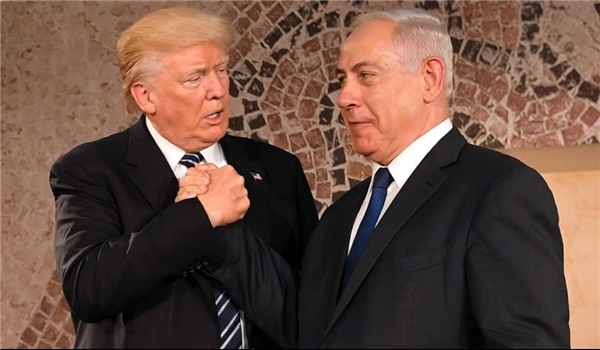
RNA - Fetzer, a professor emeritus at the University of Minnesota Duluth from Madison, Wisconsin, made the remarks in an interview on Saturday while commenting on Trump’s latest accusations against Iran.
Speaking at the World Economic Forum in Davos, Switzerland, on Friday Trump once again accused Iran of seeking nuclear weapons despite confirmations by the United Nations’ atomic agency that Tehran complies with the 2015 nuclear deal.
He called on world countries to block what he called Iran’s “path to a nuclear weapon.”
“We continue to call on partners to confront Iran's support for terrorists and block Iran's path to a nuclear weapon,” he continued.
Professor Fetzer said, “The latest assertions by President Trump assailing Iran over the nuclear agreement with the P5+1 have no more foundational justifications than his earlier complaints, and appear to be motivated a desire to represent a foreign policy of Israel rather than of the United States.”
“This has been a serious concern by many of his supporters who have in the past included me, because his foreign policy appeared to be so far superior to that of his opponent, Hillary Clinton,” he stated.
“Indeed studies by Boston University and the University of Minnesota have shown that Trump was elected president because the residents of rural counties in Pennsylvania, Ohio, Michigan and Wisconsin, which have suffered major casualties from the endless wars in the Middle East, voted for Trump in the belief that he was the less likely of the two to continue those ongoing assaults, especially because of his declaration that we have squandered five and a half trillion dollars of American taxpayer money and benefits had not been for the United States for creating chaos in the Middle East,” the academic added.
“Given that Iran has been in compliance with the requirements of the agreement, this is especially disappointing and has caused many of us to fear that as the new book Fire and Fury by Michael Wolff, which I have read, suggests that his foreign policy is not so much ‘America first’ as it is ‘Israel first,’” he noted.
“This is not what we wanted from Donald Trump. And let us hope that he changes course, and ceases to be guided by the special interests of Tel Aviv and the Israeli warmongers there in the Likud party rather than Americans here in the USA,” the analyst concluded.
Trump's anti-Iran rhetoric comes as the longstanding Western dispute over Tehran's nuclear program was settled after the conclusion of a landmark nuclear agreement in 2015. UN Security Council Resolution 2231 also endorsed the nuclear deal, which went into effect in January 2016.
The International Atomic Energy Agency (IAEA) has also confirmed Iran's commitment to the terms of the nuclear agreement, dubbed the Joint Comprehensive Plan of Action (JCPOA).
Iran and the five permanent members of the United Nations Security Council -- the United States, France, Britain, Russia and China -- plus Germany started implementing the JCPOA on January 16, 2016.
Trump has recently undermined the multilateral deal by introducing new rounds of sanctions against Iran.
Source: Press TV
847/940